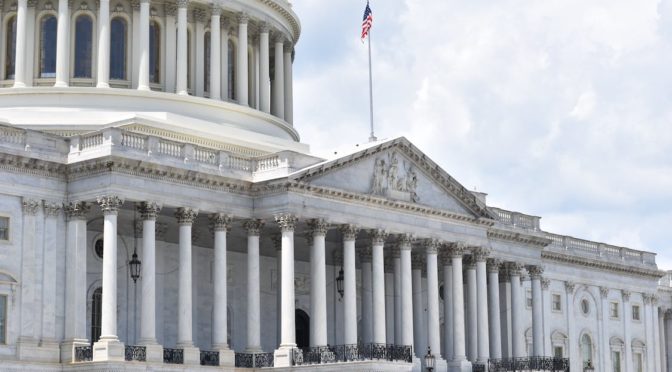In the News
News from Capitol Hill
Around the Agencies
Stakeholder Spotlight
In the News
Stateline article highlights State responses to increased alcohol consumption by women
Last month Stateline published an article on the increased number of women who consume alcohol, highlighting State efforts to target problem drinking among women. The article notes that according to the National Institute on Alcohol Abuse and Alcoholism (NIAAA), the percentage of women who drink alcohol (currently 69%) has increased 22 percent in the past 15 years, while the percentage of adult men who drink has remained about the same (77%). Additionally, female binge drinking has risen 12% in the past decade.
The article outlines the negative effects of alcohol use in women, such as the potential for developing an alcohol use disorder; increased risk for heart disease, stroke, liver disease, and cancer; and potential for sudden infant death syndrome (SIDS) or fetal alcohol spectrum disorder (FASD). The article highlights alcohol use screening programs in Delaware, North Carolina, and Colorado, noting that States are attempting to better educate women and their health care providers about drinking.
Read the full article here.
Legal Action Center launches Parity Hotline in NY to help individuals with mental health and substance use disorders understand and enforce their rights
The Legal Action Center (LAC) has launched a Parity Hotline to help New York residents understand and enforce their rights under the federal Mental Health Parity and Addiction Equity Act (MHPAEA). MHPAEA, enacted in 2008, requires health insurers to offer substance use and mental health disorder coverage that on par with other medical benefits. The purpose of MHPAEA is to end health insurance discrimination against individuals with mental health and substance use disorders and improve access to the care they need. LAC’s Parity Hotline will provide information and advice to health care providers, social services providers, advocates, and attorneys in New York related to parity issues.
The phone number for the Parity Hotline is: 212-243-1313.
Access LAC’s parity resources here.
News from Capitol Hill
House leadership send letter Governors and Health Insurance Commissioners seeking input on health care reform
Last month Republican leaders of the House of Representatives sent a letter to Governors and State health insurance commissioners regarding health care reform. The letter notes that House Republicans are working to enact “health care reforms that lower costs, improve quality, empower States and individuals, and bring our health care system into the 21st Century.” The letter seeks input and recommendations from Governors and commissioners in both Medicaid expansion and non-expansion States based on their experiences overseeing the health insurance markets and Medicaid programs. Governors and commissioners are to provide their responses by Friday, January 6th. The letter also notes that every Governor and health insurance commissioner will be invited to a meeting early this year to further discuss ideas to reform the health care system.
The letter was signed by House Majority Leader Kevin McCarthy (R-CA); Chairman of the Ways and Means Committee, Kevin Brady (R-TX); outgoing Chair of the Committee on Energy and Commerce, Fred Upton (R-MI); outgoing Chair of the Committee on Education and Workforce, John Kline (R-MN); Chair-Elect of the Committee on Energy and Commerce, Greg Walden (R-OR); and Chair-Elect of the Committee on Education and Workforce, Virginia Foxx (R-NC).
Read the full letter here.
Around the Agencies
AHRQ releases brief on MAT in Primary Care Settings
The Agency for Healthcare Research and Quality (AHRQ) has released a technical brief on Medication-Assisted Treatment (MAT) Models of Care for Opioid Use Disorder in Primary Care Settings. The brief describes promising and innovative MAT models of care in primary care settings; describes barriers to MAT implementation; summarizes the evidence available on MAT delivery in primary care settings; identifies gaps in the evidence base; and guides future research.
In summarizing models of MAT, authors used a framework with four primary components: the pharmacological component, the psychosocial services component, the integration/coordination component, and the educational/outreach component. The innovative models of MAT highlighted in the brief include: the use of designated non-physician staff to perform the key integration/coordination role; tiered care models with centralized intake and stabilization of patients with ongoing management in community settings; screening and induction performed in emergency department, inpatient, or prenatal settings with subsequent referral to community settings; community-based stakeholder engagement to develop practice standards and improve quality of care; and use of Internet-based learning networks.
Henrick Harwood, Director of Research and Program Applications at NASADAD, provided input on the AHRQ brief.
Access the full technical brief here.
OJJDP Releases Guidelines for Juvenile Drug Treatment Courts
The Office of Juvenile Justice and Delinquency Prevention (OJJDP) within the Department of Justice (DOJ) has released guidelines for Juvenile Drug Treatment Courts. OJJDP developed the guidelines to support judges and professional court staff, youth with substance use disorders, and their families. The goal of the guidelines is to “synthesize evidence from juvenile drug treatment courts (JDTCs) to determine the implementation components associated with the best outcomes and to supplement this understanding with research from related fields and interventions serving the same target population” (youth with substance use disorders at medium to high risk for reoffending). OJJDP is planning to support juvenile drug treatment courts in the implementation and testing of these guidelines through training, technical assistance, and programmatic initiatives.
As part of the rollout, OJJDP is hosting a three-part webinar series to review guidelines in detail. The first webinar, which will provide a general overview of the guidelines, will be held on January 25th. The second and third webinars will provide an in-depth review of the guidelines, and will be held on February 8th and February 22nd, respectively.
Access the guidelines here.
Register for the upcoming webinars here.
Stakeholder Spotlight
The D.C. Update from the National Association of State Alcohol and Drug Abuse Directors (NASADAD) is now featuring a “Stakeholder Spotlight” to highlight the work of a stakeholder group with which NASADAD works closely. In these spotlights we will include background on an organization that impacts the substance use disorder field and describe NASADAD’s collaborative efforts with them. This week we’re catching up with the Community Anti-Drug Coalitions of America (CADCA).
Catching Up with the Community Anti-Drug Coalitions of America (CADCA)
The Community Anti-Drug Coalitions of America (CADCA) is a membership organization representing community substance use disorder prevention coalitions. The organization’s mission is to “strengthen the capacity of community coalitions to create and maintain safe, healthy and drug-free communities globally.” CADCA has members in every U.S. State and territory, as well as 23 countries around the world. The organization provides technical assistance and training to its members, provides public policy advocacy, develops and implements media strategies and marketing programs, and hosts special events.
One of CADCA’s special events is the annual CADCA National Leadership Forum, which is a training conference for coalition members, government leaders, youth, prevention specialists, addiction treatment professionals, addiction recovery advocates, researchers, education institutions, law enforcement professionals, and faith-based leaders. The next Forum will be held February 6-9, 2017 at the Gaylord National Hotel and Convention Center, close to Washington, DC. The Substance Abuse and Mental Health Services Administration (SAMHSA) will convene its 13th Annual Prevention Day on February 6th in conjunction with the CADCA’s National Leadership Forum. During Prevention Day, SAMHSA will share its prevention priorities for the coming year and provide participants with training, technical assistance, and resources to address prevention issues.
CADCA is led by a Board of Directors, which consists of 19 individuals who represent the range of CADCA’s membership: representatives from State and local drug prevention coalitions, State substance abuse and mental health services, addiction treatment programs, post-secondary training institutions, the military, the court system, sports teams, businesses, and organizations serving specific racial and ethnic populations. CADCA also has a Coalition Advisory Committee, made up of 14 coalition leaders from across the country, to serve as a link between local coalitions and CADCA staff. The Advisory Committee ensures that CADCA’s programs accurately and effectively represent the concerns of the coalitions at the community-level.
CADCA is one of NASADAD’s most important partners. NASADAD coordinates with CADCA on a regular basis on issues related to substance use disorders, especially prevention. We are appreciative of the leadership of Chairman and CEO, General Arthur Dean, and well as Sue Thau, Public Policy Consultant for CADCA.
Learn more about CADCA here.
Read more about the CADCA National Leadership Forum here.
[back to top]
Should you have any questions, or require additional information, please do not hesitate to contact Robert Morrison, Executive Director, or Shalini Wickramatilake-Templeman, Federal Affairs Manager, at (202) 293-0090.

